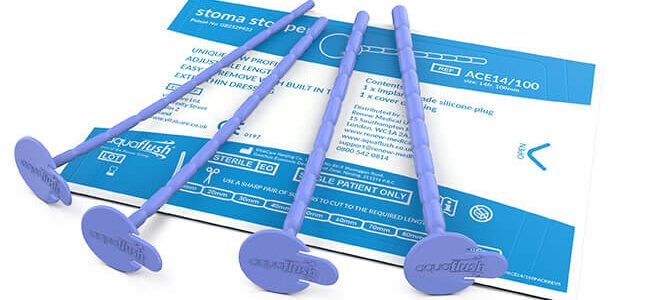A Clinician’s Guide to Prescribing Intermittent Catheters

Prescribing intermittent catheters has become increasingly difficult and complex given the variety of products available. The following clinician’s guide provides practitioners with the tools they need to properly prescribe intermittent catheters for their urological patients. What are HCPCS codes? The Healthcare Common Procedure Coding System, or HCPCS for short, are identifying codes that are used…
Preventing Stomal Stenosis in MACE and Mitrofanoff Patients

For patients who suffer from fecal or urinary incontinence, doctors may recommend a MACE or Mitrofanoff procedure to manage the condition and improve the patient’s quality of life. A MACE, or Malone antegrade continence enema, procedure involves using the appendix to create a continent catheterizable stoma to flush the colon and empty the bowels. It…
Why Hospitals are Making the Switch to Closed System Catheter Kits

Reducing hospital-acquired infections, such as CAUTI, is a major concern for infection preventionists in hospitals across the country. While many hospitals utilize foley indwelling catheters for bladder maintenance of post-surgical patients, many are making the switch to intermittent, or in-and-out, catheterization as a preventative measure to improve infection control and reduce CAUTI. When hospitals switch…
Making Self-Catheterization Possible for Quadriplegics with the MTG Eagle® Board

Adaptive bladder management methods are essential for quadriplegics with limited hand dexterity and can make a huge difference in your day-to-day life and overall independence. As a quadriplegic with limited hand dexterity, you may use catheter assistive devices to independently self-cath. Typical intermittent catheterization accessories include a catheter inserter, clothing hooks, extension tubing, urinal or…
Helpful Hints: Finding the Female Urethral Opening and Avoiding UTIs

At MTG, we interact with a lot of catheter users, and we often hear that women who self-cath have difficulty locating the female urethral opening. Fortunately, with some practice, you can become a pro at self-catheterization and find the urethral opening with ease. What is the Urethra? The urethra is the tube that connects the…
Self-Catheterization Options for Spinal Cord Injuries and Limited Hand Dexterity

Many individuals with spinal cord injuries and limited hand dexterity have been told they’d never be able to independently self-catheterize due to the limited options on the market for individuals with spinal cord injuries and limited hand dexterity. Typical intermittent catheters are often laborious for quadriplegics and tetraplegic patients to independently catheterize, leaving them to…
Spinal Cord Injury 101: Spinal Cord Injury Levels and What They Mean

According to the National Spinal Cord Injury Statistical Center, there are an estimated 300,000 Americans living with a spinal cord injury, with approximately 17,730 new injuries occurring every year. While every spinal cord injury is different, knowing your level of injury and classification of spinal cord injury can help determine treatment options and help you…
Staying Active with Adaptive Yoga After SCI

Adjusting to life after a spinal cord injury is challenging, and individuals with SCIs often struggle with finding ways to stay active. But regular physical activity is crucial for staying healthy, especially if you have a spinal cord injury. Staying active after a spinal cord injury can help reduce the risk of chronic health problems…
Top 4 Benefits of Using Closed System Catheter Kits

As an ISC user, you have a lot of catheterization supplies to manage. Making sure you always have the necessary catheterization supplies, including your catheters, antiseptic wipes, lubricant, underpad, gloves, hand sanitizer, and whatever else you may need, can often be difficult, especially when you are on the go. Rather than keep track of all…
Understanding Medicare Guidelines for Closed System Catheters
Medicare can be stressful and confusing, and you are not alone if you don’t understand Medicare guidelines for intermittent catheters, especially when it comes to qualifying for closed system catheters. At MTG, we strive to provide closed system catheters that provide protection against UTIs and are covered by insurance, but we often get questions about…